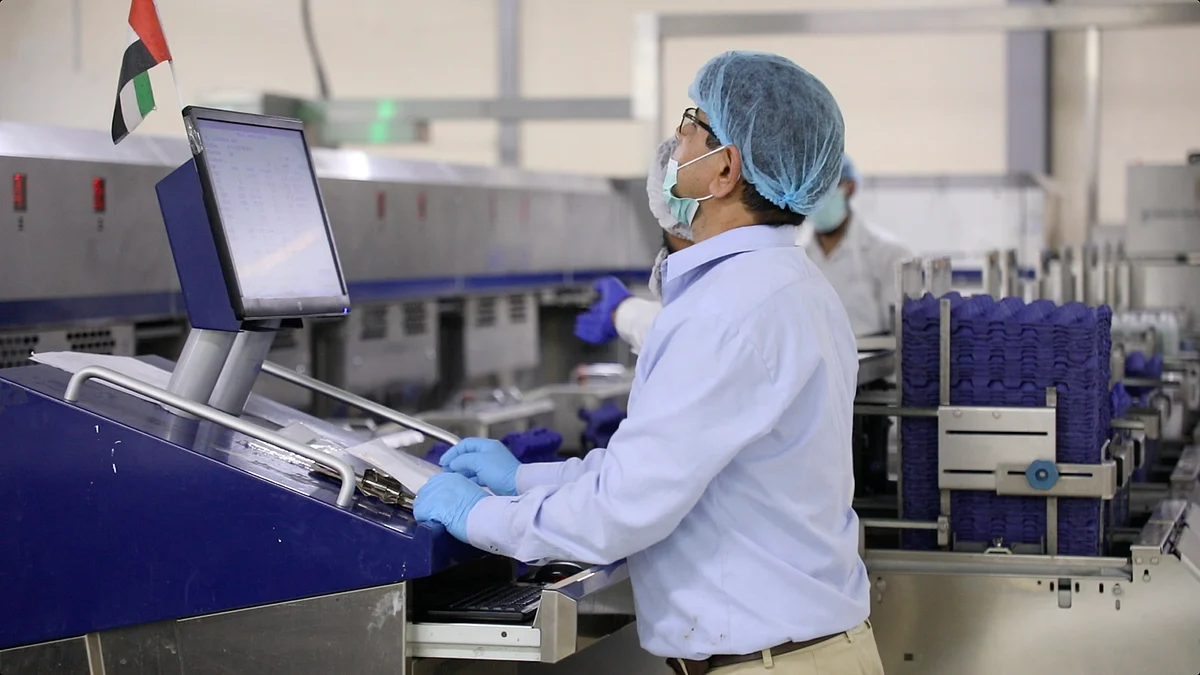Local manufacturing industry fuels Made in UAE drive
Manufacturers are promoting the Made in UAE label as a mark of quality and innovation

The UAE is positioning itself as a global hub for advanced, diversified manufacturing, backed by world-class infrastructure, integrated logistics, and a pro-investment regulatory environment. These factors are attracting local and international companies to establish production operations across the country.
Manufacturing is a national priority, playing a key role in economic diversification. In Dubai alone, the value of the sector was Dh28.3 billion in the first nine months of 2024, according to Dubai Media Office.
The recently concluded Make it in the Emirates event, hosted by the Ministry of Industry and Advanced Technology (MoIAT), further reinforced the UAE’s industrial ambitions, drawing in new industrial projects worth more than Dh11 billion.
From food production to high-tech manufacturing, entrepreneurs are launching facilities across the country that aim to reduce import dependence, support local employment, and raise the global profile of the Made in UAE label.
F&B innovation
The UAE’s food and beverage sector is playing a prominent role in the country’s industrial strategy. Camelicious has become a standout example of home-grown innovation. The company produces its camel milk products entirely within the UAE and exports to more than 30 countries.
“Producing camel milk products entirely within the UAE offers distinct advantages,” says a spokesperson from Camelicious.
“It ensures product freshness, enables stringent quality control, and supports the local economy. Operating close to our in-house source allows us to innovate sustainably and respond efficiently to all market needs, while contributing to the nation’s broader food security goals.”
Amid rising demand for functional and culturally rooted foods, Camelicious is tapping opportunities to scale internationally.
“As a proud home-grown brand, Camelicious plays a key role in advancing the Made in UAE movement,” the spokesperson says. “We collaborate with many agencies and partners to raise awareness, support new initiatives, and do research and development to elevate the global perception of Make it in the Emirates products.” This dual role, serving domestic needs as well as building international awareness, highlights how food producers align with national goals while positioning themselves as export-ready businesses.
Poultry industry anchors food security
The poultry sector is central to the UAE’s food security ambitions. With chicken and eggs among the most consumed protein sources, the government is encouraging the expansion of local capacity to reduce import dependence and ensure long-term supply chain stability.
“The poultry sector can support the UAE’s food security by boosting local production, reducing reliance on imports, and ensuring year-round availability of protein-rich food,” says Jeanette Kristensen, General Manager at Emirates National Food (ENF) and Al Salwa Farm.
“Through sustainable farming practices, like using climate-controlled systems, renewable energy and waste recycling, poultry farms can operate efficiently in arid conditions.”
This focus on climate-adapted production is supported by investment in technology and biosecurity measures, enabling large-scale operations to meet both commercial and strategic goals. Andrew Gibson, Senior Vice President at Al Ghurair Foods, echoes this alignment with national objectives.
“Poultry plays a vital role in advancing the UAE’s food security agenda, as one of the most consumed protein sources in the region,” he says. “Expanding local poultry production directly reduces dependency on imports and strengthens supply chain resilience.”
Al Ghurair has invested in high-capacity poultry farming, including automated systems that track product quality and reduce environmental impact. “With the right policy support and industry collaboration, the poultry sector can become a cornerstone of food self-sufficiency in the UAE,” Gibson adds. “It’s about building a sustainable ecosystem ¬ not just for today, but for the future.”
ENF’s Kristensen also highlights the sector’s role in ensuring quick response capabilities and stable reserves. “Poultry’s fast production cycle makes it ideal for emergency food reserves. Overall, a modern, sustainable poultry industry is key to achieving the UAE’s food security goals,” she says.
In addition to production, both companies are investing in branding and packaging as strategic tools to strengthen consumer trust and promote national identity.
“Poultry brands like Al Rawdah can strengthen the Made in UAE identity by embracing advanced manufacturing techniques that ensure high-quality, hygienic, and sustainable poultry production suited for local conditions,” says Kristensen.
“Incorporating smart packaging, such as freshness indicators, QR codes for traceability, and eco-friendly materials, can build consumer trust and emphasise the product’s local origin.”
Gibson adds that Jenan, Al Ghurair’s poultry brand, integrates packaging, production, and logistics into a coherent identity that resonates with local consumers. “Jenan has the unique opportunity to lead the Made in UAE identity by combining local farming excellence with world-class innovation,” he says.
“Smart packaging further elevates the brand’s credibility. With clear labelling, traceability features, and freshness indicators, consumers can easily identify Jenan eggs as the UAE-farmed products.”
On the logistics front, efficient cold chain distribution ensures that products go from farm to shelf quickly, preserving freshness and minimising waste. “This agility gives local brands a competitive edge over imported goods,” he adds.
Advanced manufacturing expands export capacity
Companies like Hotpack Global are demonstrating how UAE-based manufacturing can grow its global footprint. A leader in sustainable packaging, Hotpack has used the UAE’s industrial base as a launchpad for expansion across 17 countries.
“Manufacturing in the UAE has been a cornerstone of Hotpack Global’s success,” says Abdul Jebbar PB, Founder and Group Managing Director of Hotpack Global.
“The country’s world-class infrastructure, strategic geographic location, and business-friendly environment have enabled us to serve both regional and international markets with speed and efficiency.
“Our base in the UAE has empowered us to build a strong global footprint,” he adds.
“We are leveraging this hub to scale strategically, backed by robust logistics, advanced manufacturing capabilities, and supportive government initiatives like Make it in the Emirates.” ■
Network Links
GN StoreDownload our app
© Al Nisr Publishing LLC 2026. All rights reserved.